Resources
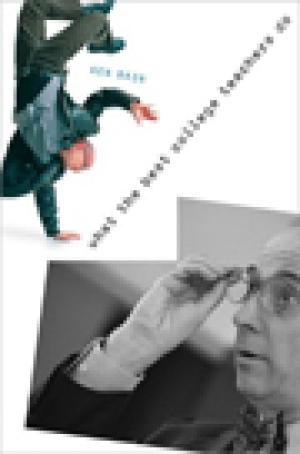
Winner of the Virginia and Warren Stone Prize awarded annually by Harvard University Press for an outstanding book on education and society. What makes a great teacher great? Who are the professors students remember long after graduation? This book, the conclusion of a fifteen-year study of nearly one hundred college teachers in a wide variety of fields and universities, offers valuable answers for all educators. The short answer is -- it's not what teachers do, it's what they understand. Lesson plans and lecture notes matter less than the special way teachers comprehend the subject and value human learning. Whether historians or physicists, in El Paso or St. Paul, the best teachers know their subjects inside and out -- but they also know how to engage and challenge students and to provoke impassioned responses. Most of all, they believe two things fervently: that teaching matters and that students can learn. In stories both humorous and touching, Ken Bain describes examples of ingenuity and compassion, of students' discoveries of new ideas and the depth of their own potential. What the Best College Teachers Do is a treasure trove of insight and inspiration for first-year teachers and seasoned educators alike. (From the Publisher)
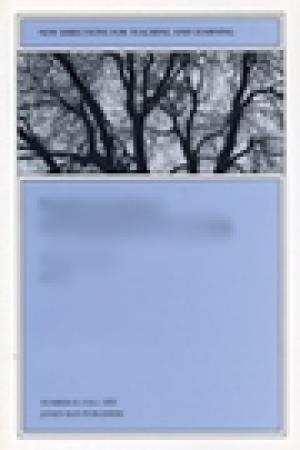
Are the new elitism and conservatism that are creeping into academia degrading undergraduate education? This volume seeks not to resolve the issues surrounding academia today but rather to mark the contested points in the debates on whether to incorporate cultural diversity in the curriculum, whether to compete for the research dollar, and how to evaluate faculty humanely in a changing atmosphere. As Eble urged, in the 1990s it is imperative that we find ways to foster good teaching and learning in an academy that must change to meet the needs of students from different demographic backgrounds and with different levels of preparedness, and academy that is facing continuing political and budgetary pressures. (From the Publisher)
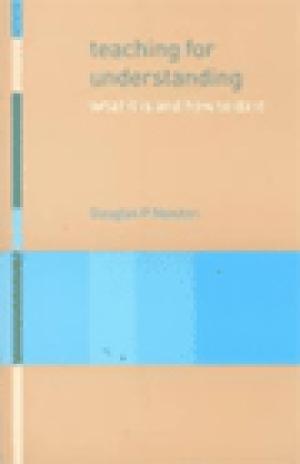
Teaching for Understanding describes the nature of understanding, strategies that support it, and factors which bear upon it in a way which makes it accessible to teachers in raining, practicing teachers, and lecturer in education. Its coverage includes understanding and its nature, constructing relationships and mental structures, surrogate teachers, metacognition, and assessment. (From the Publisher)
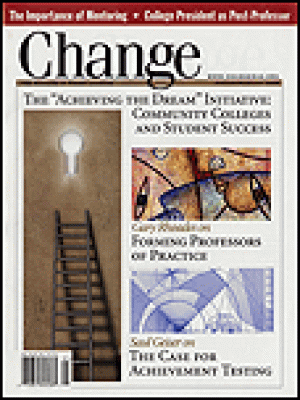
Journal Issue.
The author builds his foundation for teaching reform on an idea of teaching that emphasizes comprehension and reasoning, transformation and reflection. He discusses (1) sources of teaching knowledge, (2) conceptualizations of these sources, (3) processes of pedagogical reasoning and action, and (4) implications for teaching policy and educational reform.
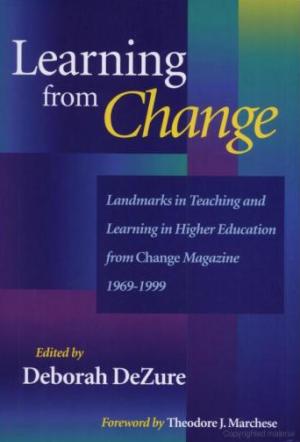
Since its inception in 1969, Change magazine has been the bellwether of higher education. It has framed the key issues confronting the academy, attracted the best minds, and shaped the debate. In this important collection, Deborah DeZure and a panel of contributing editors have selected landmark articles on teaching and learning in higher education published in Change from its launch to the present. Through the articles and incisive commentaries we follow the controversies, witness the reception of innovations, and trace the threads of continuity of the past thirty years. What emerges is both an indispensable set of perspectives and a rich resource of models and ideas. The book spans a period that began in the turmoil of student unrest in the 60's, and concludes at the close of 1999 with higher education grappling with the issues of purpose, accountability, technology and changing demographics. What is striking about these articles is the vitality and relevance of the voices from the past. They offer valuable insights and inspiration as we plan for the future, and consider how to foster effective teaching and learning environments. Organized by topic, the articles in each section are introduced by a recognized authority in the field. Deborah DeZure's Introduction and Conclusion offer both the context and an analysis of trends. Learning from Change constitutes both fascinating reading and an important compass for administrators in higher education, directors of faculty development, and deans, department chairs and faculty engaged in leadership roles in the academy. It is an invaluable introduction and survey for anyone who wants to familiarize him or herself with the issues and trends. (From the Publisher)